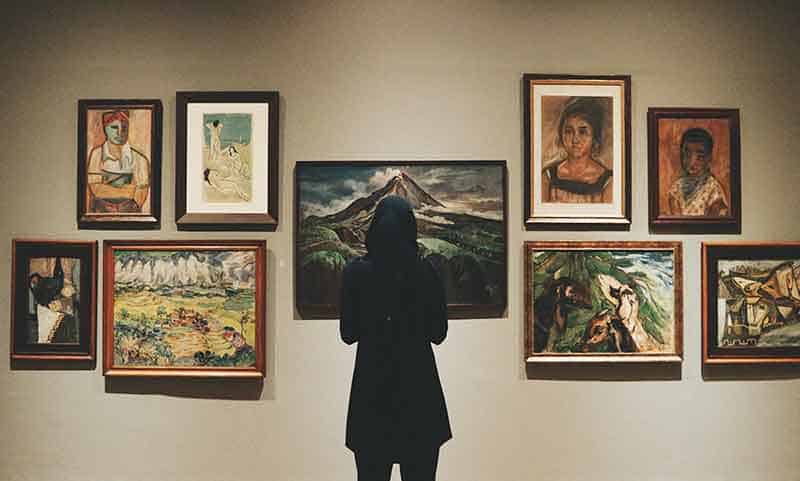Is creativity dead? A look at the impact of AI on creative industries
Written by Sarah Freeman, Managing Editor, Business & Finance
Read the full article on businessandfinance.com
In 1964, American science fiction writer and professor of biochemistry at Boston University, Isaac Asimov, famously predicted what the world would look like in 50 years time. Writing in the New York Times, he said, “The world of A.D. 2014 will have few routine jobs that cannot be done better by some machine than by any human being. Mankind will therefore have become largely a race of machine tenders.”
Years later, he expanded on this theory in ‘Robot Visions’, wherein he posited, “In a properly automated and educated world, then, machines may prove to be the true humanising influence. It may be that machines will do the work that makes life possible and that human beings will do all the other things that make life pleasant and worthwhile.”
Today, it could be argued that Asimov’s predictions have come to pass. With the rise of Generative AI, specifically ChatGPT which was launched in late 2022, machines can write novels and poetry, compose sonatas and symphonies and create artistic compositions in mere seconds. As society acclimatises to this new wave of AI tools, Business & Finance speaks with a number of leading experts in the cultural sphere to get their take on this new paradigm and gauge the reaction to the technology and the impact it might have on creativity.
Professor Chris Morash is the Inaugural Seamus Heaney Professor of Irish Writing at Trinity College Dublin. He confesses to enormous interest in generative AI.
“I’m fascinated by it. Technologies have always changed the way we use language and the best way of understanding the present is understanding the past. In the 19th Century, the telegraph completely transformed what was understood to be news. In 1858, the first transatlantic telegraph was transmitted and people talked about time and space being annihilated.”
When television first came out, there were dire predictions as to how it would rot the brains of the world
“What we’re going through at the moment is another iteration of that,” continues Morash. He mentions media theorist, Marshall McLuhan, who spoke about the ‘Rearview Mirror Effect’, positing that it was only really possible to see a technology when one had already gone past it.
“We really have only come to appreciate television with the advent of the internet and realise that it’s an art form, it’s not just entertainment rubbish. This is as legitimate as cinema or theatre…when television first came out, there were dire predictions as to how it would rot the brains of the world.”
Morash acknowledges that certain skills may ultimately be lost if students are not required to aggregate information, sift through vast tracts of text, isolate salient concepts and distil arguments. He goes further to say that certain kinds of legal advice that generative AI could do well whereby a practitioner must sift through legislation and precedent and come up with what is the best solution e.g. the Law of Torts, Tax and Property.
“My own field of literature is probably a little bit safer because we’re dealing with precisely those areas where language doesn’t do what you expect it to, where it’s the things that aren’t said, the breaking of the rules of language that actually produce the interesting effects. AI struggles with those things.”
Beauty in the unexpected
Deborah Kelleher is Director of the Royal Irish Academy of Music. She also has a somewhat sanguine outlook.
“Working with AI in some form is inevitable and it’s already here. I’m a pragmatist, so the question is how do we minimise the dangers and maximise the positives.”
Kelleher notes that the music currently created by AI, using outputs that have been fed in, is not of such a standard that would threaten composers.
“It isn’t yet astonishingly beautiful or surprising so in a way, what you’re hearing is somewhat old fashioned. In the arts, you’re expecting something unexpected, something very special. That’s why the arts are there. So more of the same is not attractive.”
“I would find it very hard to believe that I would be moved on a level from something that is artificially created because we also want to see human beings challenge themselves and doing something that is not easy to do. These are aspects of being human that AI can never recreate and in fact I imagine they’ll become even more valued rather than less.”
Kelleher concludes that it’s necessary to draw the positives from AI because ‘the tide is not for turning’. “It is a more democratic age thanks to AI and technology because more people can access information and even though the extremes of wealth and poverty are depressing, the age of technology allows people from disadvantage to have a slightly more even playing field.”
Philip Kennedy is a lecturer and leads the Illustration course at National College of Art and Design.
Kennedy suggests that AI will encourage us to have conversations about art and to question what it means to make art, what value it holds in the world and what collective function artists might serve. Indeed, he puts it further.
“While it’s easy to think of art as being a human skill, it can be a little limiting to think of it in such singular terms. Indeed, creating art is not just one skill but several. The world is in constant motion and art works to react to these changes. If we were to look at visual art prior to the 19th century, we could argue that the majority of it centred around the representation of the external world. But, as technology advanced, the skill of representation was surpassed by technologies such as the camera, and artists adapted and began to be concerned with exploring other things such as the internal world, our own inner lives and abstraction.”
“Art is something that is always in flux. It’s always reacting to the world around it. Being able to react to this change is one of the key skills of being an artist and so I don’t think it’s 100% the case that AI is encroaching on what it means to be an artist.”
Kennedy believes these conversations will lead to a deeper questioning and understanding of the value of art being produced.
“Why should we make art during a period of such great global inequality? Why should we make art when the planet is dying? When we are suddenly confronted by these types of questions, I think the notion of an AI artwork winning an art prize suddenly starts to feel rather trivial.”
For further exploration of what AI means for our world, visit Dublin Tech Summit on 31 May and 1 June, 2023. Tickets for this year’s event are on sale now.



